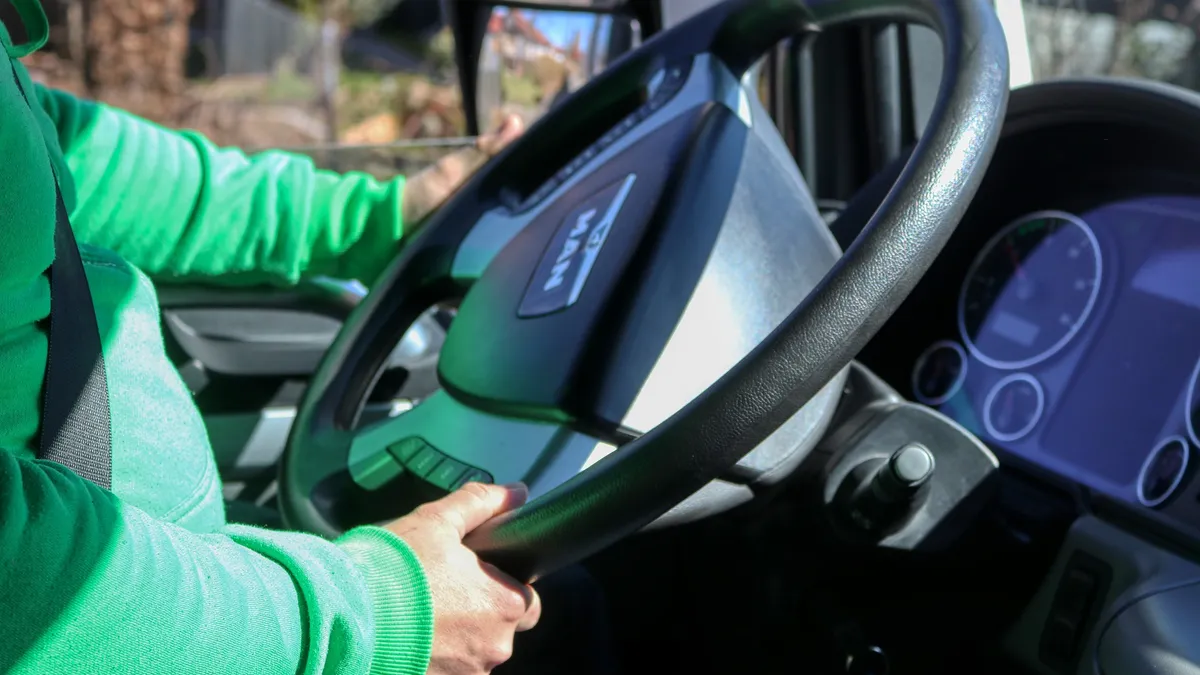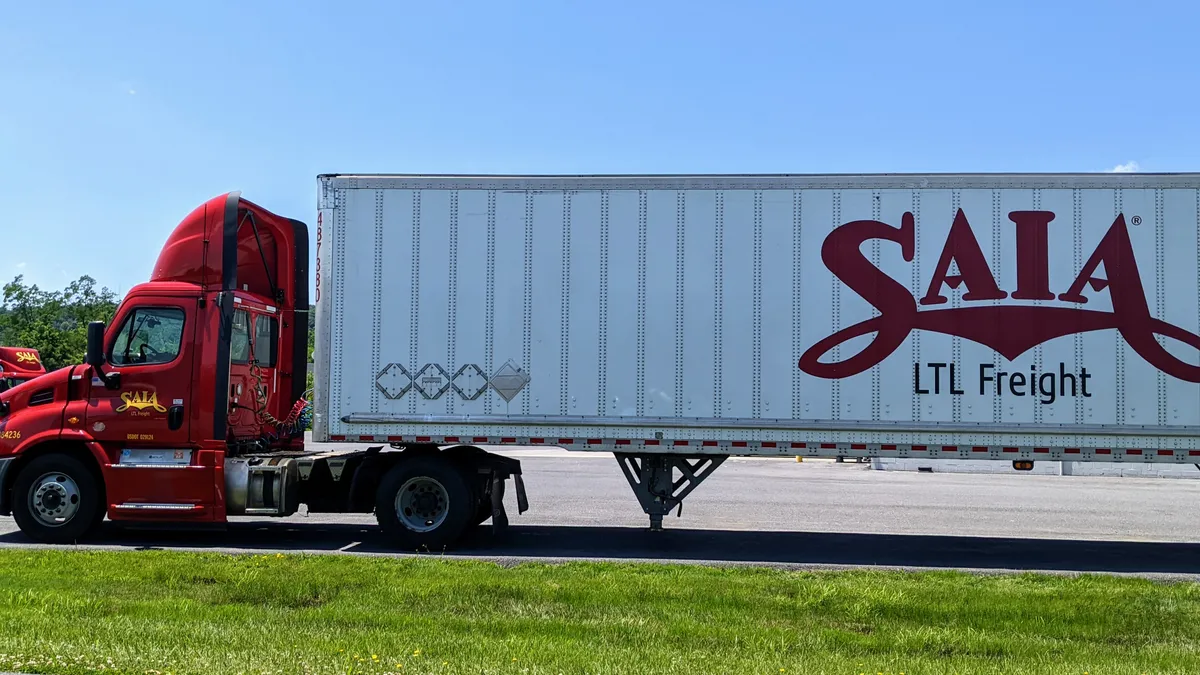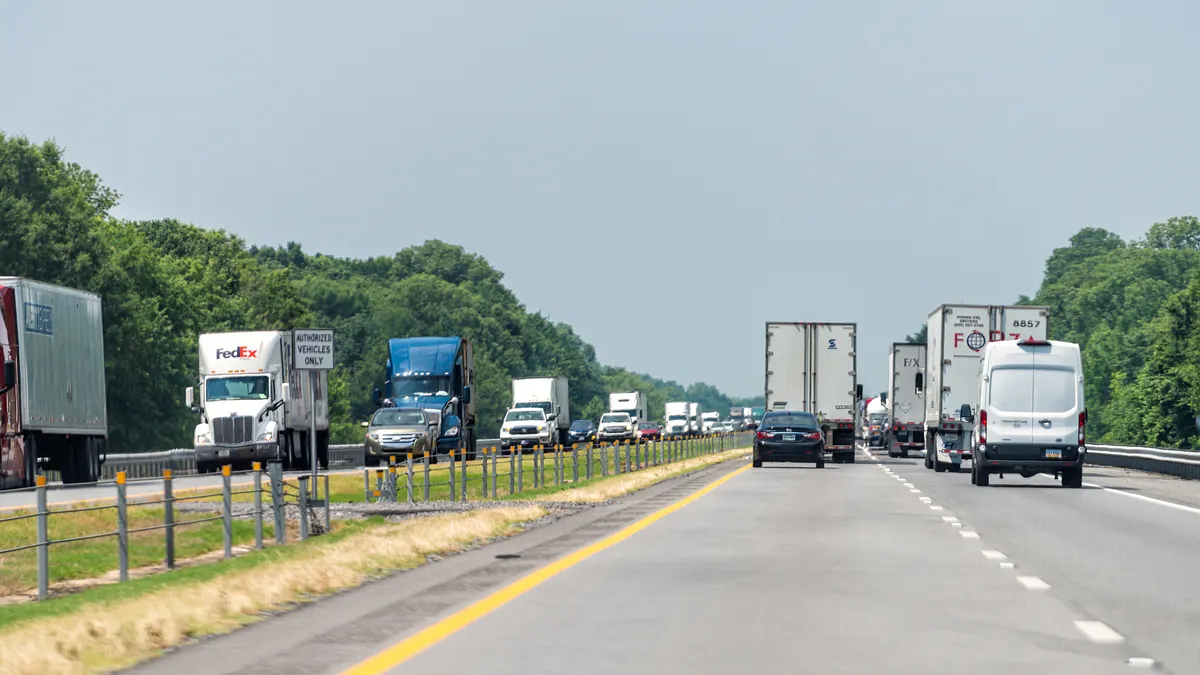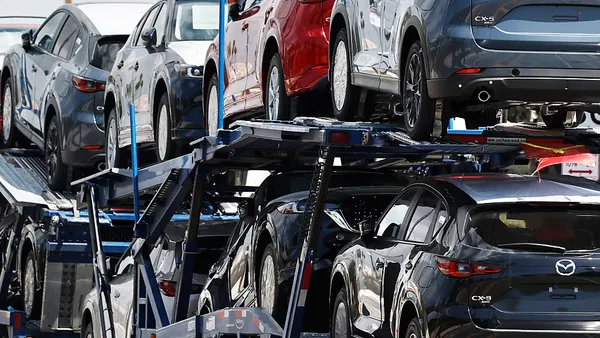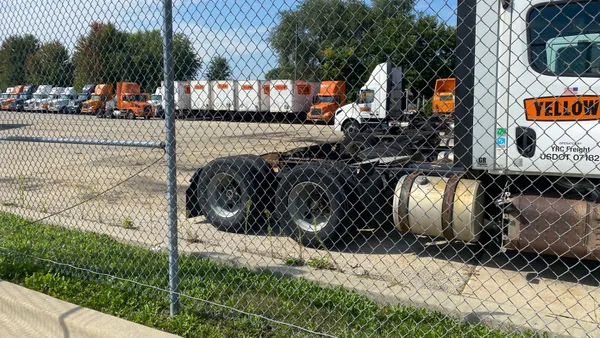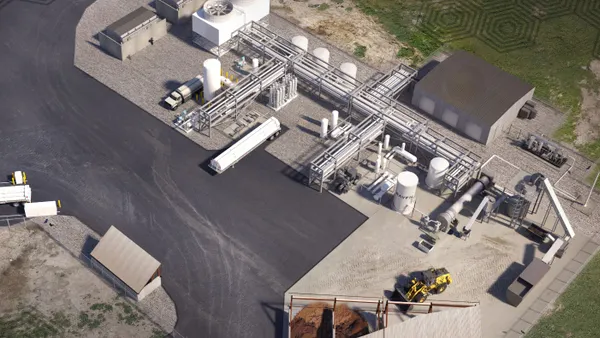Dive Brief:
- The FMCSA is proposing a pilot to study an HOS change, according to a notice Friday. The change would allow drivers one off-duty break of at least 30 minutes, no more than three hours, that would pause the 14-hour driving window, according to the notice. Drivers would still need to take 10 consecutive hours off duty at the end of a shift.
- The pilot program, called the Split Duty Period Pilot Program, would last three years or fewer and would be open "to a certain number" of CDL holders, the notice stated.
- The FMCSA is requesting public comments on the proposed pilot. The public comment period is open for 60 days.
Dive Insight:
The FMCSA's HOS changes center around flexibility, which many transport managers, drivers and shippers have long called for as a way to make supply chains more efficient.
"To create more flexibility ... that's a win for everybody," Weston LaBar, CEO of the Harbor Trucking Association, told Transport Dive in May.
An off-duty break that pauses the clock could add additional flexibility to the HOS rule changes, which modified sleeper-berth exemptions and adverse driving conditions exceptions, and allowed the break after eight hours of driving time to be satisfied by on-duty, not driving status, rather than off-duty status.
The agency was considering adding the pause on the 14-hour driving window to the final HOS rule but decided against it due to public comments, according to the pilot proposal. LaBar said HTA members would have benefited from that change, if it had become law.
"An off-duty break of up to 3 consecutive hours during a work shift may enable drivers to avoid congestion," the FMCSA said, which would make drivers more productive. The break could also reduce pressure to break the speed limit and reduce fatigue, the agency said.
The agency acknowledged that if the break is misused — "to compensate for time wasted during the 14-hour driving window due to detention periods," it gave as an example — potential benefits would be undermined.
The purpose of the program would be to gather data and evidence about "whether decisions concerning the timing of such flexibility can be aligned with employers', shippers', and receivers' scheduling preferences to optimize productivity" while ensuring that safety levels don't slip below what they currently are, according to the pilot proposal. Part of the pilot would explore how often detention pauses occur and what effect they have on drivers.
Participants in the pilot would be issued a smartphone installed with data-collection applications, as well as a wrist actigraphy device, which measures a person's sleep and activity cycles. Participants whose trucks don't have an ELD would be provided with one. And the FMCSA plans to collect data on records of duty status and other factors through use of a video-based onboard monitoring system, along with conducting other research.

